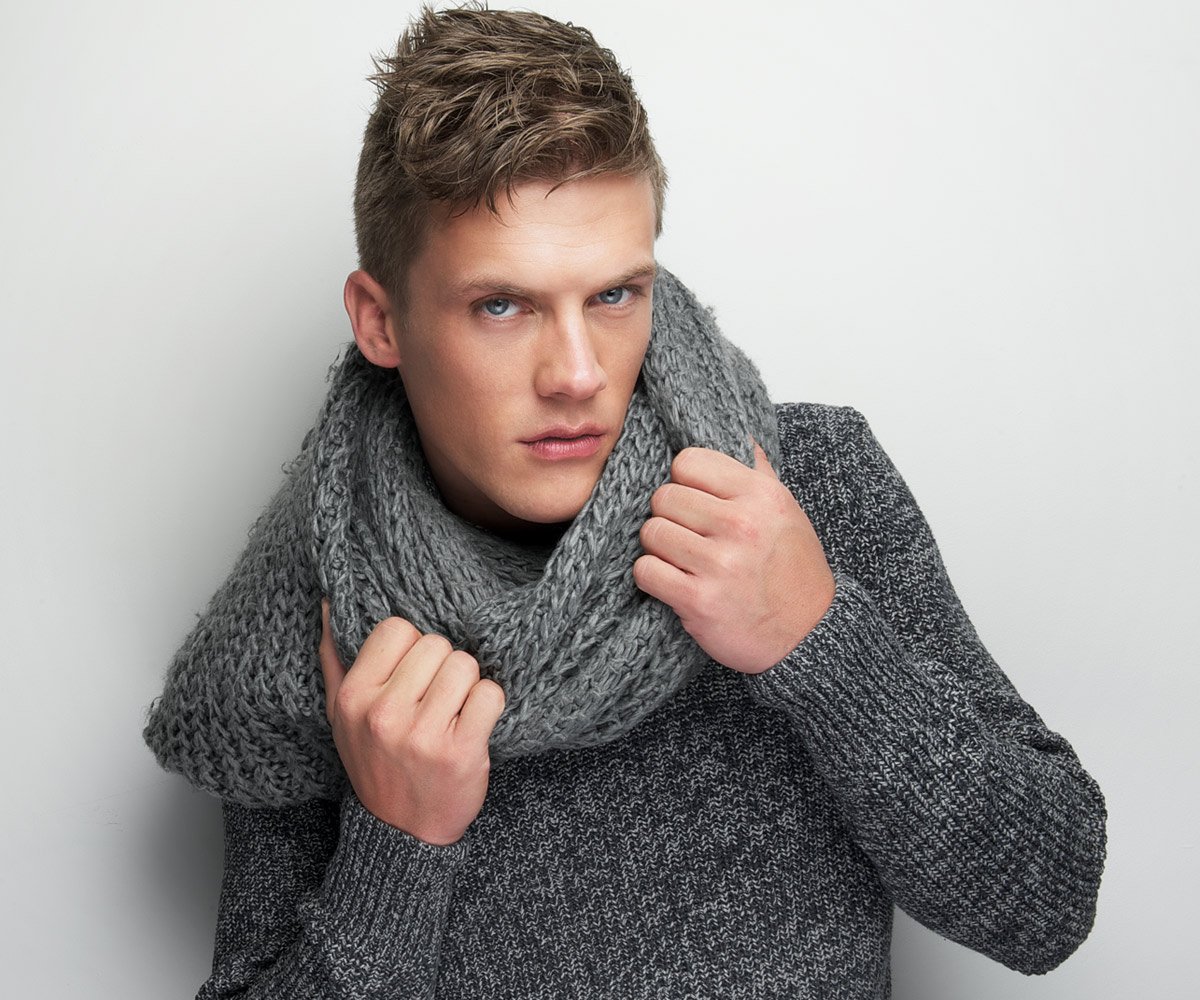Jean is more than a fabric-it’s a living archive of everyday life, stitched into workrooms, runways, and weekend routines. As a material and a garment, denim absorbs our moving definitions of comfort, utility, and style. Its evolution is visible in today’s vast spectrum of silhouettes, washes, and sizes-skinny too boyfriend, light to dark, petite to plus-signaling how a single cloth can be tailored to many bodies, moods, and moments [[1]] [[2]].
Unraveling Jean: Fabric, Fashion, and Identity traces how this twill becomes a social canvas: how cuts and finishes translate into personal expression, how the promise of a “perfect fit” intersects with ideals of self, and how durability and versatility keep denim at the center of contemporary wardrobes [[1]] [[2]].In these pages, we follow the threads-material, cultural, and individual-to see how jean both shapes and is shaped by the people who wear it.
From Indigo plant to Loom: The Material Science of Denim and How It Shapes Drape, Durability, and Fade Patterns
Before a jean becomes a silhouette, it is engineered. Cotton is spun into yarns whose twist and uniformity tune elasticity and hand; on the loom, denim’s warp-faced twill-were the weft passes under two or more warp threads-builds the signature diagonal ribbing that reads as structure and strength, a construction historically associated with Nîmes, France [[1]].The interplay of warp tension, weave density, and yarn count sets the physics of drape (fluid vs. crisp), the ceiling of durability (resistance to tear and seam stress), and the canvas for fade (contrast potential as surface dye abraded by time reveals lighter yarn beneath). In practice, the face-dominant warp stabilizes the cloth while the subservient weft cushions movement-an engineered duet that lets denim feel both tough and pliant [[1]].
| Material Lever | Drape | Durability | Fade Pattern |
|---|---|---|---|
| Higher yarn twist | Tighter, crisper | Stronger yarns | Sharper, slower |
| Tighter weave density | structured | More abrasion-resistant | Fine, high-contrast |
| Deeper indigo shade | Heavier hand feel | Stout face | Gradual lightening |
- Warp-faced twill guides how fabric bends and wears along the twill line, shaping both silhouette and wear maps [[1]].
- Balanced yarn size and tension distribute stress,preserving seam integrity while allowing living creases to form.
- Weave openness and surface dye depth set the pace and poetry of fades-subtle bloom or bold contrast.
As bodies move, denim records their choreography. Flex points and friction zones-knees, hips, hems-polish the ridges of the twill, and because the warp dominates the face, abrasion cascades along those diagonal ribs, carving familiar creases and exposing lighter undertones from the yarns beneath [[1]]. Whether left raw or pre-finished, the fabric’s micro-architecture determines how quickly whiskers emerge, how honeycombs stack behind the knees, and how cuffs brighten: a dialog between fiber, dye, and weave that turns material science into biography-each pair a map of motion etched by time and tension.

pattern,Cut,and Fit: Translating body Diversity into confident Silhouettes with Measurement Guides,Rise Selection,and Alteration Strategies
Fit begins on paper: before denim meets needle,the blueprint dictates comfort,posture,and poise. In apparel, a “pattern” is more than decoration; it’s the organized plan that repeats and anchors the cut-a notion echoed in standard definitions as a particular way something is organized, a decorative design, and a predictable repetition [[3]][[2]][[1]]. To translate body diversity into clean lines, start with measurements that describe proportions, not just sizes. Map the body to your draft: torso length to rise; hip arc to seat ease; thigh and knee to taper; calf to break.Precision here lets the cut honor movement rather than resist it.
- Waist (natural): anchor for balance lines; compare to waistband minus ease.
- High/Full Hip: dictates yoke angle and back rise scoop.
- Front/Back Rise: divides torso length; guide comfort in seated posture.
- Thigh/Knee: controls drape through motion; informs taper.
- Inseam/Outseam: establishes length and visual break.
| Body cue | Rise choice | pattern/Alteration |
|---|---|---|
| Short torso, long legs | Mid to low | Lower front rise; keep back rise stable for seat |
| full seat, tilted pelvis | Mid to high | Scoop back crotch; add yoke depth; release seat ease |
| High tummy fullness | Mid with curved waistband | Add front rise length; contour waistband; dart to fly |
| Straight hips, slim thigh | Any, with structure | Reduce hip ease; sharpen knee taper; keep calf ease |
Cut for confidence: choose silhouette by balancing rise against posture and fabric recovery. High rises stabilize the core and elongate; mid rises blend ease with range; low rises relax the torso line. Then apply targeted adjustments that preserve grain and hang: pinch at the center-back for gaping, not at side seams; pivot at the crotch curve to add or remove seat length; taper below the knee to refine without binding the thigh; open the back thigh slightly to ease whiskering; and let hems break lightly to lengthen the leg. Strategic edits-small, intentional, and pattern-led-transform denim from a compromise into a quiet, effortless silhouette.

Ethics Woven In: Certifications to Trust, Low Impact Washes, and Care Routines for a Longer Denim Life with Clear Purchase Checklists
Buy denim with receipts: look for third‑party proof that a brand’s claims hold up. Autonomous certifications and transparent reporting signal lower impact materials, safer chemistry, and attention to worker wellbeing-key issues across the denim supply chain highlighted by recent industry analyses [[3]][[2]][[1]].
- GOTS (for organic cotton integrity, from field to finished fabric) [[3]][[2]]
- OEKO‑TEX Standard 100 or bluesign (restricted chemicals, safer inputs) [[3]]
- GRS (recycled content verification) [[2]]
- Fair trade or robust wage/rights disclosures (worker protections and premiums) [[1]][[2]]
| Low‑impact Finish | What It Replaces | Why It’s Better |
| Laser whiskers | Hand sanding | Precision, fewer particulates [[3]] |
| Ozone fade | Bleach baths | Less water, lower chemical load [[3]] |
| E‑flow/nebulization | Stone washing | Minimal water, no pumice sludge [[3]] |
| Enzyme wash | Harsh acids | Biodegradable agents, softer handfeel [[3]] |
Make your jeans last-and tread lighter-with simple care that protects fibers and reduces resource use across denim’s high‑impact lifecycle [[3]].
- Wash rarely: spot clean first; cold, short cycles when needed; turn inside‑out to protect indigo [[3]].
- Choose mild detergents; skip softeners; air dry to save energy and retain shape [[3]].
- Repair as ritual: patch knees, re‑stitch hems, and embrace visible mending [[3]].
- Quick purchase checklist:
- Fiber: organic or recycled cotton clearly labeled (GOTS/GRS) [[3]][[2]]
- Finish: laser/ozone/e‑flow, published water/chemical savings [[3]]
- People: factory locations, living‑wage progress, worker voice mechanisms [[1]]
- Chemistry: OEKO‑TEX/bluesign claims,PFAS‑free statements [[3]]
- End‑of‑life: repair, resale, or take‑back programs [[2]]

Styling for Self and Setting: Capsule Pairings for Work, Weekend, and Formal with Color Harmony Rules and Accessory Dos and Donts
Build your denim capsule around intention: let the wash set the mood, then layer textures and tones that echo your calendar. For work, a dark-rinse straight jean anchors clean lines-pair with a dusty navy blazer and an ecru knit to keep the palette monochrome-adjacent and calm. Off-duty, lean into analogous hues: light-wash denim with sage, sea-glass, and stone for a relaxed gradient that never clashes. When the RSVP reads formal, elevate with black denim or ink indigo as your neutral base, then add a silk blouse in a complementary accent (think cobalt + terracotta or emerald + blush). let materials carry the message: matte cottons for daytime, subtle sheen for evening, and a single focal fabric-suede, silk, or patent-to avoid visual noise.
- Work: Dark denim + navy blazer + ecru knit + oxblood loafer
- Weekend: Light wash + sage tee + stone overshirt + white sneaker
- Formal: Black denim + silk blouse (emerald) + tux-cut jacket + patent heel
Color harmony is your quiet stylist. Use monochrome for polish, analogous for ease, complementary for impact, and neutrals-as-bridge (white, gray, tan) to calm bolder mixes. Accessories should frame, not fight: scale them to silhouette and let metals echo hardware sparingly.Keep the eye traveling with one statement per zone-ear, neck, wrist, waist-so denim’s texture remains the narrative thread. When in doubt, mirror undertones: cool washes love silver, pewter, and blue-tinted hues; warm washes glow with gold, brass, camel, and olive.
- Do: Match belt leather to shoe family; keep bag metal close to jewelry tone; choose one high-shine piece only.
- Don’t: Over-stack logos,mix three+ metals in one look,or pair ultra-chunky shoes with ultra-wide hems.
- Do: Use scarves for vertical lines; pick watch straps that echo shoe/belt texture (suede with suede, smooth with smooth).
- don’t: Over-coordinate exact shades-aim for related tones to avoid the “set” look.
| Harmony | Denim Wash | Pairing Colors | Vibe |
|---|---|---|---|
| Monochrome | Dark Rinse | navy, Ink, ecru | Polished |
| Analogous | Light Wash | Sage, Sea, Stone | Relaxed |
| complementary | Black | Emerald + Blush | Elevated |
| Neutral Bridge | Mid Wash | Tan, White, Charcoal | Balanced |
In retrospect
unraveling Jean doesn’t pull it apart so much as reveal its seams: fabric as technology, fashion as language, identity as practice. These threads carry work and weekend, protest and performance, uniform and self-invention. As materials and methods evolve-toward certified organic cotton blends and chemical processes assessed for human and environmental safety-our choices echo beyond closets, linking personal style to broader ecologies and economies [[2]]. Whether we distress, repair, or pass them on, the afterlives we grant our jeans become part of their meaning.
Perhaps the most honest way to honor Jean is to wear it with attention: to origins and labor, to fit and function, to care and continuity. The next chapter belongs to makers and wearers willing to look closely,choose deliberately,and let longevity outshine novelty. When we listen to the cloth and the cultures around it, we don’t just get a better pair of jeans-we get a clearer pattern for how to live with the things we keep.

